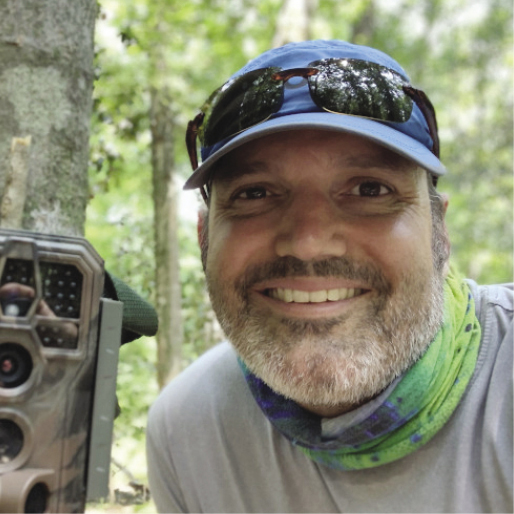Jason Blackburn, Ph.D.
Professor of Geography
College of Liberal Arts and Sciences
2023 Awardee
Jason Blackburn is a leader in medical geography, where his groundbreaking research not only enriches our understanding of zoonotic diseases but also informs policy decisions with far-reaching implications.
Zoonotic diseases affect both animals and humans. He focuses primarily on anthrax, brucellosis, and melioidosis, all bacterial diseases characterized by indirect transmission, often involving exposure to pathogens in the environment.
Blackburn, a member of the Emerging Pathogens Institute, has pioneered ways of predicting the geographic distribution of these diseases using ecological niche models. These models, employing genetic algorithms or AI-based techniques, establish non-random relationships between disease events and environmental conditions. Satellite data, including vegetation, and ground data, such as precipitation and temperature, form the foundation of these models.
Blackburn is currently focused on Southeast Asia, East Africa, and Central Asia, where he is the principal investigator on two projects in Vietnam totaling about $9 million that address all three pathogens. He is also the PI of a long-running brucellosis study in Kazakhstan, where he has worked since 2004. His team recently completed the first whole genome sequence of anthrax in the Philippines and he is hoping to study all three diseases there, with a goal of linking Vietnamese and Filipino partners.
Blackburn also works to translate his research into practical applications, with a focus on the efficacy of brucellosis and anthrax vaccine strategies. His efforts span diverse regions, including Kazakhstan, Vietnam, Kenya, Ghana and Australia.
Blackburn’s Spatial Epidemiology and Ecology Research Laboratory serves as the focal point for cutting-edge research at the intersection of geography and infectious diseases. Under Blackburn’s guidance, the lab has made significant contributions to our understanding of the interplay of diseases that transcend geographic boundaries, ecosystems and species.
As a teacher Blackburn seeks to bridge the gap between theory and practice. He has developed innovative courses that immerse students in real-world applications. He helped establish Medical Geography in Global Health, a groundbreaking undergraduate program — the first of its kind nationally. This program not only enriches geography education but also addresses the pressing global health challenges of our time.
Jason Blackburn’s research and teaching transcend traditional boundaries, shaping policy decisions, and offering invaluable experiential learning opportunities,” said Jane Southworth, chair of the geography department. “His contributions to the field of medical geography underscore the profound impact of a scholar committed to knowledge, education and real-world change.”


